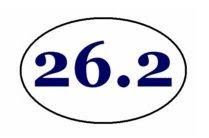Slightly unsatisfying run. I stayed up too late, got up too early, and ate too close to heading out. Legs felt fatigued, hip flexor started hurting. Adjusted my pace and my attitude - I am where I am. Had wanted to run at a faster pace, but I did fine. A nice run overall.
I spent the morning organising my training material, journaling about the marathon and reading one of the tri training books. Figured out how to upload my Garmin reports into Training Peaks which is an online training journal that I've been trying to figure out how to use for ages!
Tomorrow's plan is a group ride: distance between 50 - 75 km, hopefully through the bulb fields (the photo above).
Training for the Bustinskin Triathlon has many components:
Swim: I will swim 2 -3 times a week, at least twice with my tri-club, focusing on technique first, then speed. Within a couple weeks, I will add a weekly open water swim.
Bike: I'm still thinking about this. Overdistance weekend rides. The tri-club trains in the evenings during the week, which doesn't fit with my desire to be with my family in the evenings. So that leaves mornings or lunchtime workouts. I haven't finished Carmichael's book, but I think his workouts will kick my ass. I need to figure out how to do "hill training" in a flat country. I decided not to go to the workshop this weekend since my Dutch isn't good enough and I'd rather train anyway.
Run: I have the endurance I want, and need to maintain it. I want to increase my speed and work on my POSE technique. I plan to follow the half marathon program from FIRST, which will also kick my ass since it's rather intensive in the pacing department.
I felt like a drug addict running today, addicted to my walk breaks. Coaches leave their mark on their trainees. My body has adapted to walk breaks while running. My e-coaching program is up this week. I want a different emphasis - more speed-work and a more rounded overall program. He discourages stretching, yoga and weight training. I have progressed beautifully over the last year. The next year I want to add core strength and balance. I love the look of some triathletes.
Nutrition: I've been haphazard the last couple weeks and have been eating wheat and oatmeal. My skin has broken out and I've gained a couple pounds. This is bothering me a lot. I've turned the page and I'm Endurance Paleo for the next 20 weeks. Lean and healthy. Tomorrow I'll weigh & measure myself.
Mental Training: an essential discipline. I aspire to a meditation practice.
Core performance: flexibility, balance, regeneration & yoga. I'm following the Endurance training program from Core Performance.
Well, that's all for now. I'm burning daylight.














